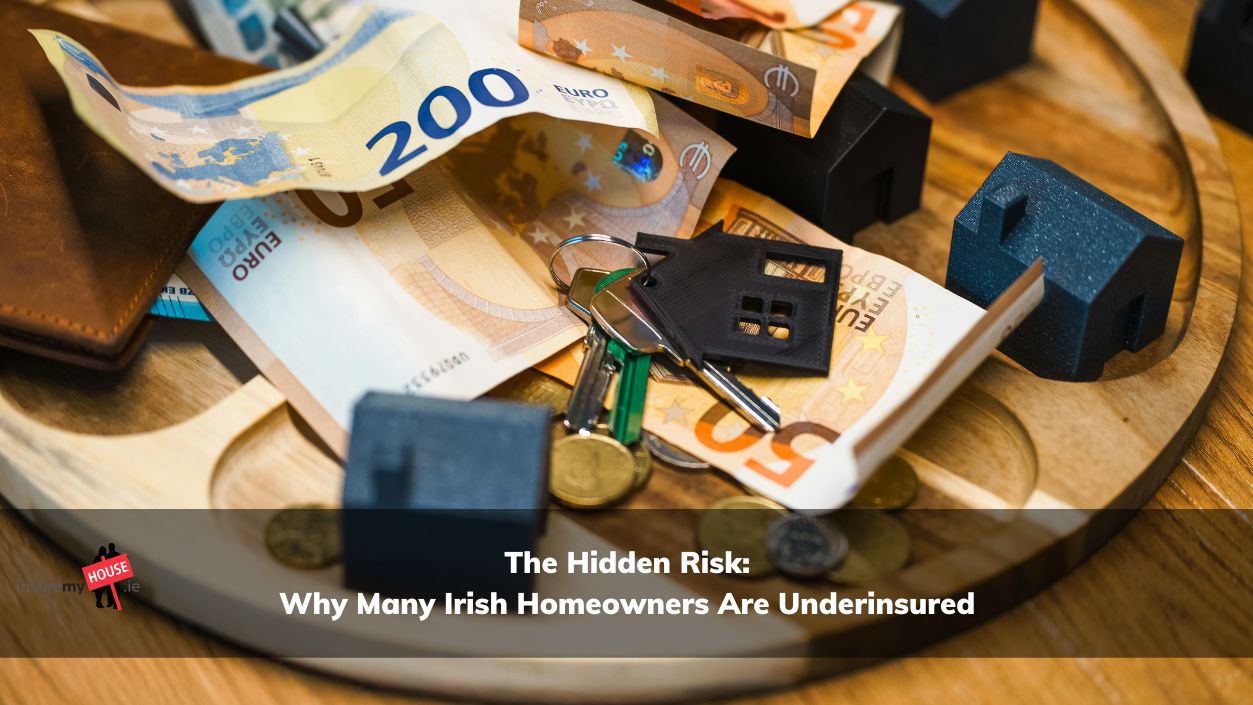Monday, 25 March 2024
How Much Is Stamp Duty for Residential Property In Ireland 2025
Learn how much is stamp duty in Ireland for residential properties. Understand rates, and exemptions, and learn about the stamp duty calculator.
Curious about how much is stamp duty in Ireland? You're in the right place. In this guide, we delve into the intricacies of stamp duty, exploring its rates, exemptions, and everything in between. Whether you're a first-time buyer or a seasoned investor, understanding stamp duty is crucial for navigating property transactions effectively. Plus, we'll introduce you to a handy tool you can use in Ireland – a stamp duty calculator - to simplify the process. As a leading provider of property insurance, we're here to help ensure your property journey is as smooth as possible. So, let's dive in!
What is Stamp Duty in Ireland?
Stamp duty is an important consideration when it comes to buying a residential property in Ireland. It’s a tax that is charged on the transfer of ownership of land and buildings. It applies to both residential and non-residential properties.
The rates are determined by the value of the property. Higher rates are applied to properties valued above certain thresholds. However, there are exceptions. This includes a higher stamp duty rate imposed on the purchase of 10 or more residential houses or duplexes within a specified period. This measure aims to deter investment funds from acquiring entire housing estates. To learn more about this, visit Gov.ie.
Understanding stamp duty in Ireland is essential for anyone involved in property transactions. It's not just a tax; it's a legal requirement that forms part of the property transfer process. When you're
buying a residential property, it's important to have clarity on stamp duty. It ensures compliance with the law and avoids any potential complications in the transaction process. Now let’s get into how much stamp duty you’ll pay in Ireland.

How Much is Stamp Duty in Ireland?
Stamp duty rates in Ireland vary depending on the type of property and the purchase price. For residential properties, the stamp duty rate is 1% of the first €1 million of the purchase price and 2% on the excess over €1 million. However, if the property is a new build in Ireland, the stamp duty is calculated based on the net purchase price, which excludes VAT at 13.5%. This means you only pay 1% of the net purchase price.
For non-residential properties, such as land or commercial buildings, the stamp duty rate is 7.5% of the final purchase price.
Additionally, there are special provisions under the Finance Act 2021 for individuals or companies purchasing multiple properties. If you buy 10 or more residential houses or duplexes within a year, you will be subject to a higher stamp duty rate of 10%. This measure aims to discourage investment funds from buying up large quantities of housing stock.
Example Scenario of Stamp Duty in Ireland
To illustrate, let's consider an example scenario:
Imagine you're purchasing a second-hand residential property valued at €350,000. How much stamp duty will you pay in Ireland? Well, for the first €1 million, the stamp duty rate would be 1%. This means you are liable to pay a €3,500 stamp duty fee. Since the purchase price is below €1 million, there's no excess, and thus, no additional stamp duty. Therefore, the total stamp duty payable for this property would be €3,500.
If it is a new build, you would only pay 1% stamp duty of the net purchase price (Gross price less VAT @ 13.5%). So, the cost to you would be €3,027.50, rather than €3,500.
Understanding these stamp duty rates and regulations is crucial for anyone involved in property transactions in Ireland. It ensures compliance with the law and helps you budget effectively for your property purchase.

Who Does Stamp Duty Apply To?
Under Irish law, stamp duty applies to different property transactions. This includes those involving residential homes. It’s not exclusive to homeowners; but also affects landlords, property developers, and investors. Here's who it applies to:
1. Residential Property
This includes houses, apartments, and sites bought with plans to build homes on them. If you're buying a site to construct a house or apartment, you'll pay stamp duty based on the total site and building costs.
2. Non-Residential Property
If you buy a site without plans to build homes, you'll pay stamp duty at a different rate.
When Do You Pay Stamp Duty?
Stamp duty is typically paid when property transactions are finalised. You'll pay it when:
1. Completing a Property Purchase: Stamp duty is due when you're finalising the purchase of a property, whether residential or non-residential.
2. Signing Contracts: In most cases, stamp duty is paid when you sign the contracts transferring property ownership.
When purchasing property, your solicitor will manage the arrangements for paying stamp duty to Revenue. As a buyer, your role is to ensure you have the funds available to cover the stamp duty obligation.
Using a Calculator to Determine Stamp Duty Costs in Ireland
When it comes to determining stamp duty in Ireland, a useful tool at your disposal is the stamp duty calculator. This tool helps you estimate what stamp duty amount is payable on your property in Ireland.
These calculators cater to residential properties, applying rates of 1% on the first €1 million and 2% on any amount exceeding that. To use the stamp duty calculator, ensure you input the correct property price. If you’re purchasing a new build in Ireland, remember to enter the net price after deducting VAT to determine the correct stamp duty.
Using the calculator tool has multiple benefits. It ensures transparency, giving you a clear view of your financial obligations. Plus, it saves time by providing accurate estimates. This helps you make informed decisions faster. It's also crucial for budgeting and ensuring you have the necessary funds for your property purchase. Overall, it simplifies the stamp duty calculation process, making your property purchase smoother.
At InsureMyHouse.ie, we're big fans of using calculator tools to help homeowners make informed financial decisions. Want to calculate the cost of rebuilding your home? Check out our guide on using a house rebuild cost calculator.

Stamp Duty Exemptions
Certain transactions are exempt from stamp duty in Ireland. These exemptions include:
1. Transfers or leases of property between spouses and civil partners, except sub-sales,
2. Property transfers between former spouses or civil partners under a court order after divorce or dissolution,
3. Property transfers between cohabitants under a Property Adjustment Order since January 1, 2011,
4. Purchases under the local authority tenant purchase scheme, where stamp duty is capped at €100.
5. Farm consolidation relief: This is for farmers who buy and sell agricultural land to consolidate their holdings and improve farm viability. It provides for a stamp duty rate of 1% on these transactions.
This was announced in Budget 2023 and is due to end on the 31st of December 2025.
Do You Pay Stamp Duty When You Sell?
When it comes to stamp duty in Ireland, the accountable person responsible for paying the duty is typically the buyer, not the seller. However, in the case of property transfers as gifts, all parties involved are considered accountable persons.
Knowing how much stamp duty is in Ireland is crucial for anyone involved in property transactions. It's not just a tax; it's a key financial aspect of the transfer process. Understanding rates, exemptions, and payment timing helps you confidently navigate stamp duty complexities. At InsureMyHouse.ie, we're here not only to assist with stamp duty but also to offer tailored home insurance
solutions. Protect your investment with the right coverage and enjoy peace of mind.






